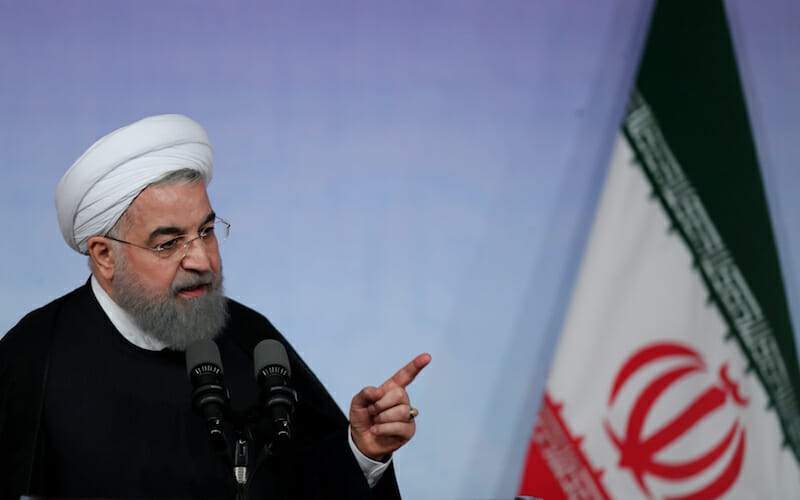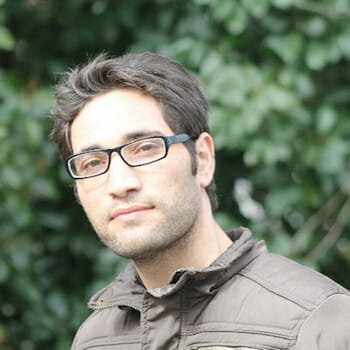
UN Envoy Slams Iran
The Saudi envoy to the United Nations has condemned Iran’s longstanding persecution of the Arab Ahwazi people, saying that the regime has shown no indication that it “intends to address the oppression and persecution suffered by the Arab people of Ahwaz, such as the outlawing of their Arab identity and their civil rights.”
In a blistering statement issued on October 25, Khalid Manzlawi, Saudi Arabia’s Acting Permanent Representative to the UN, said that Iran “seeks to divert the world’s attention from the abhorrent human rights situation [in Iran] by creating chaos and destabilizing security and stability in the region through spreading a discourse of hatred and sectarianism.”
Manzlawi strongly condemned Iran’s human rights abuses, saying that the Iranian people “have reaped the fruits of their government’s hostile policy towards the world.” He added that rather than choosing to use its financial resources for domestic development, Iran choses instead “to ignite strife outside its geographical borders, supporting terrorist operations around the world and destabilizing the security and stability of neighbouring countries.”
In the statement cited by the official Saudi Press Agency, the envoy further asserted, “It is clear to all that Iran has a black record in the field of human rights and disrespect for international conventions and treaties and its international obligations,” and accused Iran of practicing “racial and religious discrimination against non-Persian people, such as Ahwazis, Kurds, Turks, and Baluchis.”
This is regarded as the second official stand by Saudi Arabia in denouncing Iran’s crimes in the Arab Ahwaz region. Back in November 2016, Saudi Arabia’s Ambassador to the United Nations, Abdullah Mouallimi, strongly condemned Iran concerning Ahwazi Arabs, Sunni Muslims, and other minorities in the country. During the voting session for the third meeting of the UN General Assembly (UNGA), the committee members unanimously approved a draft resolution condemning Iran’s grotesque human rights violations.
Despite Ahwaz being the home to around 95% of Iran’s oil and gas reserves, the vast majority of the Ahwazi live in poverty and squalor, often without running water, electricity or the most basic sanitation.
On Yemen, Manzlawi said, “Iran is the material and logistical backer of all the terrorist operations carried out by the Houthi militias in Yemen. Yemen’s ports have been used to smuggle ballistic missiles, weapons, ammunition, and explosives to the terrorist militias there and have exacerbated the suffering of the Yemeni people because of the blockade as a result of the siege imposed by the Houthi militias on some of its ports.”
On October 26, the United Nations special rapporteur on Human Rights, Asma Jahangir, confirmed in a report that Iran continues to commit various human rights violations. Jahangir said the UN continues to be concerned about the increasing amount of torture, executions, and abuses of ethnic and religious minorities in Iran. She also expressed concern over increasing security activities restricting freedoms of human rights activists.
In the report, Jahangir addressed Iran’s escalating number of executions. Iran carried out four executions of children this year and that Iran intends to execute 86 children under the age of 18 years in the near future.
Jahangir also addressed how journalists are treated. The report pointed to the arrest of 12 journalists and 14 social network activists during the first six months of this year.
Jahangir also mentioned specifically the pressure exerted by Iran on families and relatives of “BBC Persian” employees working in the London-based office. The regime has been accused of threatening these employees’ families who are still living in Iran in order to coerce the journalists to sever ties with the BBC.
While these public condemnations raise public awareness of Iran’s long history of human rights violations, it is imperative these words be followed up with punitive actions. As long as Iran is allowed to continue its crimes with relative impunity, minority groups will continue to suffer. It is time for Iran to see some actions aimed at deterring such future criminal activities.

